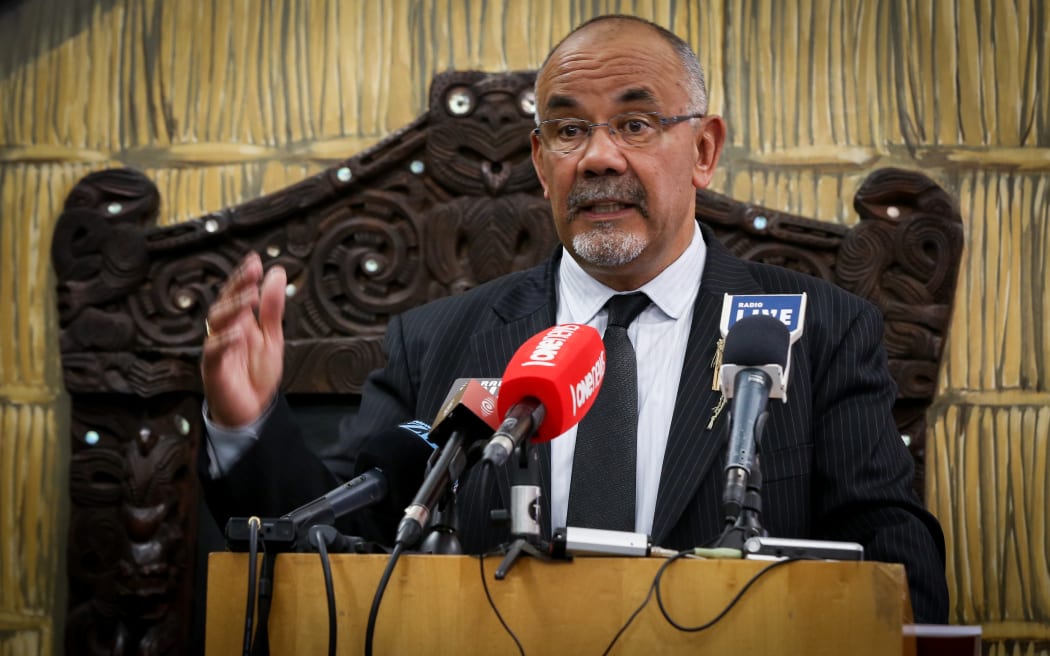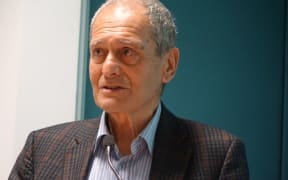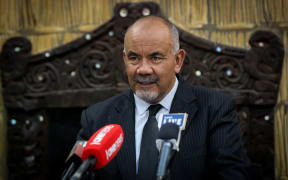Power Play - Whanau Ora is the Maori Party's flagship policy, but five years on, even the Government support partner finds it difficult to explain exactly what the programme does, and where the money for the various contracts comes from.

Te Ururoa Flavell, bureaucratic language has not helped. Photo: RNZ / Alexander Robertson
The latest report card on Whanau Ora has been released and it was light on any hard data.
It surveyed hundreds of whanau and concluded many have found the initiative useful, but it did not go into details about how it was funded, particularly the controversial Whanau Innovation and Integration Fund.
This reflects the public relations surrounding the programme since it was launched in 2010.
While many agree in principle it sounds like a good idea, few can explain exactly how it works, or whether it works.
The bureaucratic language of the minister responsible for Whanau Ora, and Maori Party co-leader Te Ururoa Flavell, was not particularly helpful.
Take, for example, this response to the report.
"Tells us that Whanau Ora is an innovative approach that puts whanau at the centre of service delivery and works with them on the strength-based model.
"The notion of sad and bad, doom and gloom - the deficit model - have been the approaches that have not worked."
Mr Flavell also acknowledged more work needed to be done on communication.
"Certainly, I've been trying to work with Ministers across the board to make sure everyone gets a good overview, and given the number of presentations I think we're in a far better space on the government side of things."
The fact the programme still has to be explained to fellow Ministers and public servants speaks volumes.
A review of the programme's first four years by the Office of the Auditor-General a few months ago highlighted similar problems.
The overview is sprinkled with phrases such as: "It was not easy to describe what it is, or what it has achieved"; "Could not get a consistent explanation of the aims of the initiative" and that the programme was: "unclear and confusing to many of the public entities and whanau".
But the Auditor-General also cautioned that an "innovative" programme should not be abandoned because of teething problems during its implementation. It also noted it had been a success for many families.
Another challenge for Whanau Ora is that - although its administration and core costs are listed in the Government's financial statements - it was not so easy to trace where money for the various contract providers had come from, and exactly what it has been spent on.
When it was first established, then Maori Party co-leader and founder of Whanau Ora, Tariana Turia, acknowledged it was a "high trust" model - which she said was necessary to deliver the programme.
The double-edged sword is that it has left the programme vulnerable to political attacks, with the most vociferous opponent, New Zealand First leader Winston Peters.
He objects to what he sees as racially-targetted funding, and regularly highlights examples of what he calls wasteful and unjustified spending.
Despite this, Prime Minister John Key and Finance Minister Bill English have continued to support the programme and pledged to ensure it continued after Dame Tariana's retirement.
In fact, it could be seen as a precursor to the social investment model favoured by Mr English and the devolution of central agency funding to non-government organisations or groups.
The policy was originally part of the confidence and supply deal between National and the Maori Party.
It was a risky political initiative, especially from a National Party that in recent years had campaigned vigourously against any form of race-based funding.
The inherent problem for the Government is that the way Whanau Ora was delivered crosses departments, and so money spent on various providers was difficult to nail down; and this left the programme open to criticism.
The same concerns have been raised about similar approaches the Government intends to take in other areas; one of them is social housing.
Private, or non-government, organisations that will receive taxpayer money are not directly accountable to Parliament, or subject to checks and balances such as the Official Information Act.
Politicians assure the public that any organisation participating in social programmes wants to make the world a better place - that may be fine in principle - but makes no allowance for financial mismanagement, or an individual within the organisation with less altruistic intentions.
While there has been positive feedback about some gains made under Whanau Ora, there is still a lack of understanding about its operations, and whether the money spent is delivering the promised benefits.
As the Government proceeds with more "high trust" models, the public should be able to trust that the politicians hold these organisations to the same standards expected of other government departments and agencies.



